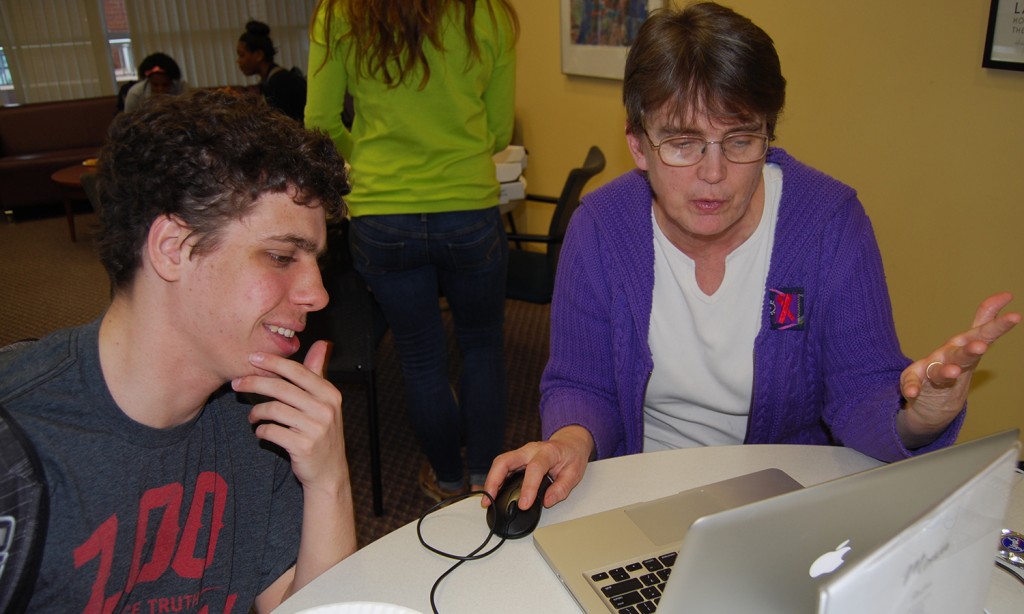As the semester starts to wind down, that scary due date on your syllabus for that final research paper, presentation or other big assignment gets closer and closer. But don’t worry- you don’t have to go through this alone. The library employs “subject specialists” in over 60 subject areas. They can help you with multiple stages of your paper, from choosing a topic to managing your citations. I sat down with Kathy Labadorf, Reference Librarian and the subject specialist for Women, Gender and Sexuality studies, and she informed me of all that she and her colleagues have to offer students.
- Come in as soon as you get the assignment.
Kathy’s most important piece of advice? Don’t wait until the last minute. As soon as you have the specifications for the assignment, come see a librarian. They can conduct what is called a “reference interview” with you where they can ask questions to help you specify or narrow down your topic.
“We want to get you to a place where you have something to start with,” she said.
- Find out where to look.
Kathy’s rule of thumb is, “If you can’t find what you’re looking for in 20 minutes, come see us.”
Since the librarians hand pick a lot of the databases and sources that the university offers, they can easily make connections between different information sources to help you find research to support your topic. They know which databases will be good for you and can help you with keywords and search tips. They are constantly searching for new information and are happy to share their findings with you.
According to Kathy, “everything is interesting to a librarian.”
- Find out which sources you should trust.
The subject specialists can also help you to evaluate the sources you find. They teach “information literacy” to students to help them learn how to identify things like bias, timeliness and authority that can distinguish a good reference from a bad reference.
Kathy and the other specialists also recognize that you may need some non-scholarly sources as well.
“These can bring in different perspectives. For example, a lot of information and statistics about women come from data from different NGO’s,” she said. The librarians can help you evaluate the legitimacy and value of sources like these.
- Make a plan.
Kathy will often do exercises with students like “mind maps” to strategize the organization of research papers.
“We want to make sure you walk out of the door with a plan,” she said. “We want to open the door for you and give you a starting point to continue on.”
- Ask from home.
Did you know that you can chat online with a librarian? If you have a quick question, or don’t want to trudge through the snow in the winter to the library, UConn librarians are available to chat on the library website to discuss any questions you may have. If the chat is offline, you can also consult the searchable FAQ, call the library, or send an email.
So if you have a big assignment and don’t know where to start, the subject specialists can help. They are located on the first floor of the library- stop by today!

